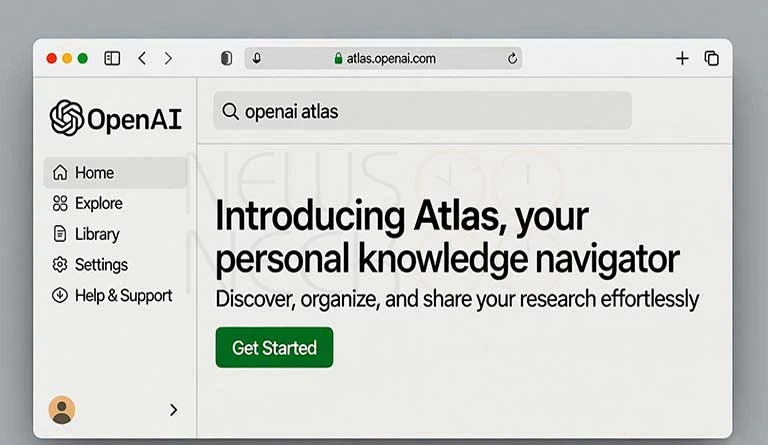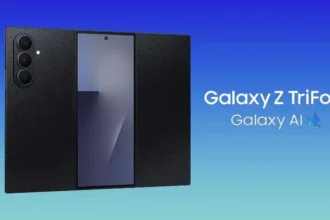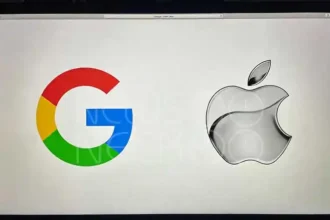The Search Bar Just Got a Brain: How OpenAI’s New Browser Could Change the Internet Forever
Imagine asking a question to the internet and getting a single, clear answer instead of a list of ten blue links. Imagine a web browser that doesn’t just find information, but understands it, summarizes it, and explains it to you in plain language. This is the future that OpenAI is now betting on, and it’s a future that places it on a direct collision course with Google, the company that has defined how we search the web for over two decades.
In a move that sent ripples through the tech world, the artificial intelligence company OpenAI has launched its own web browser, called “Atlas.” This isn’t just another browser; it’s a direct challenge to the heart of Google’s empire. The new browser is designed to make OpenAI’s popular ChatGPT the main gateway to online search, fundamentally changing how millions of people might find information online.
For years, using ChatGPT for real-time information was clunky. It was like having a brilliant librarian locked in a room with outdated encyclopedias. With Atlas, that librarian is not only set free but given a super-powered search engine. The goal is simple but ambitious: to make finding information on the internet feel less like a chore and more like a conversation.
A New Kind of Search
So, how does Atlas actually work? Unlike traditional browsers where you type a few keywords into a search bar, Atlas is built around a chat interface. You ask a question in your own words, just like you would when talking to a person.
For example, instead of searching “best Italian restaurant New York romantic atmosphere,” you could ask Atlas, “My wife and I are celebrating our anniversary next week in New York. Can you find a highly-rated Italian restaurant with a romantic vibe and check if they have availability next Friday?”
Atlas, powered by ChatGPT, would then scan the web, read reviews, check booking sites, and present you with a concise summary of the best options, complete with key details and direct links to make a reservation. It does the work of scrolling through multiple websites for you.
“This is a fundamental shift from ‘search’ to ‘understanding,'” said a tech analyst familiar with the launch. “Google is fantastic at cataloging the web. OpenAI is now trying to be fantastic at comprehending it and delivering the precise answer you need.”
You Might Like it: Google DeepMind is using AI to build a better fusion reactor
Why This is a Threat to Google
Google’s entire business is built on search. Its powerful algorithm sorts through billions of web pages to provide the most relevant links. People then click on those links, and Google makes money from the ads placed on both the search results and the websites you visit.
OpenAI’s Atlas disrupts this entire model. If the AI provides a direct, summarized answer right there in the chat window, users may have less reason to click on any links at all. This could potentially threaten the flow of web traffic that countless businesses and publishers rely on, and more importantly, the ad revenue that fuels Google.
The table below highlights the core differences between the two giants:
| Feature | Traditional Search (e.g., Google) | Atlas with ChatGPT |
|---|---|---|
| Interaction | Type keywords into a search bar. | Have a conversation in natural language. |
| Result | A list of links (10 blue links) to websites. | A direct, summarized answer with sources cited. |
| User Action | User must click through links to find the answer. | User gets the answer immediately, with optional links for deeper reading. |
| Best For | Finding a specific website or exploring broad topics. | Complex questions that require synthesis of multiple sources. |
The Road Ahead
The launch of Atlas is just the beginning of a new “browser war,” but this time the battle is over artificial intelligence. Google is not standing still. The company has its own powerful AI, Gemini, and has been rapidly integrating AI features into its own search engine.
However, OpenAI has a head start in capturing the public’s imagination with ChatGPT. By building a browser around it, they are making their AI the center of the user’s online experience.
The success of Atlas will depend on a few key factors: Is the information it provides consistently accurate? Can it handle the incredible scale of the entire internet? And perhaps most importantly, will people be willing to change a lifelong habit of “Googling” something?
One thing is certain: the way we interact with the vast knowledge of the internet is changing. The simple search bar, a fixture of our digital lives for decades, now has a smart, talkative competitor. The race to build the brain of the internet is officially on.
Author: Yasir Khan
Date: 22 Oct, 2025
For More Updates, Visit Newsneck













